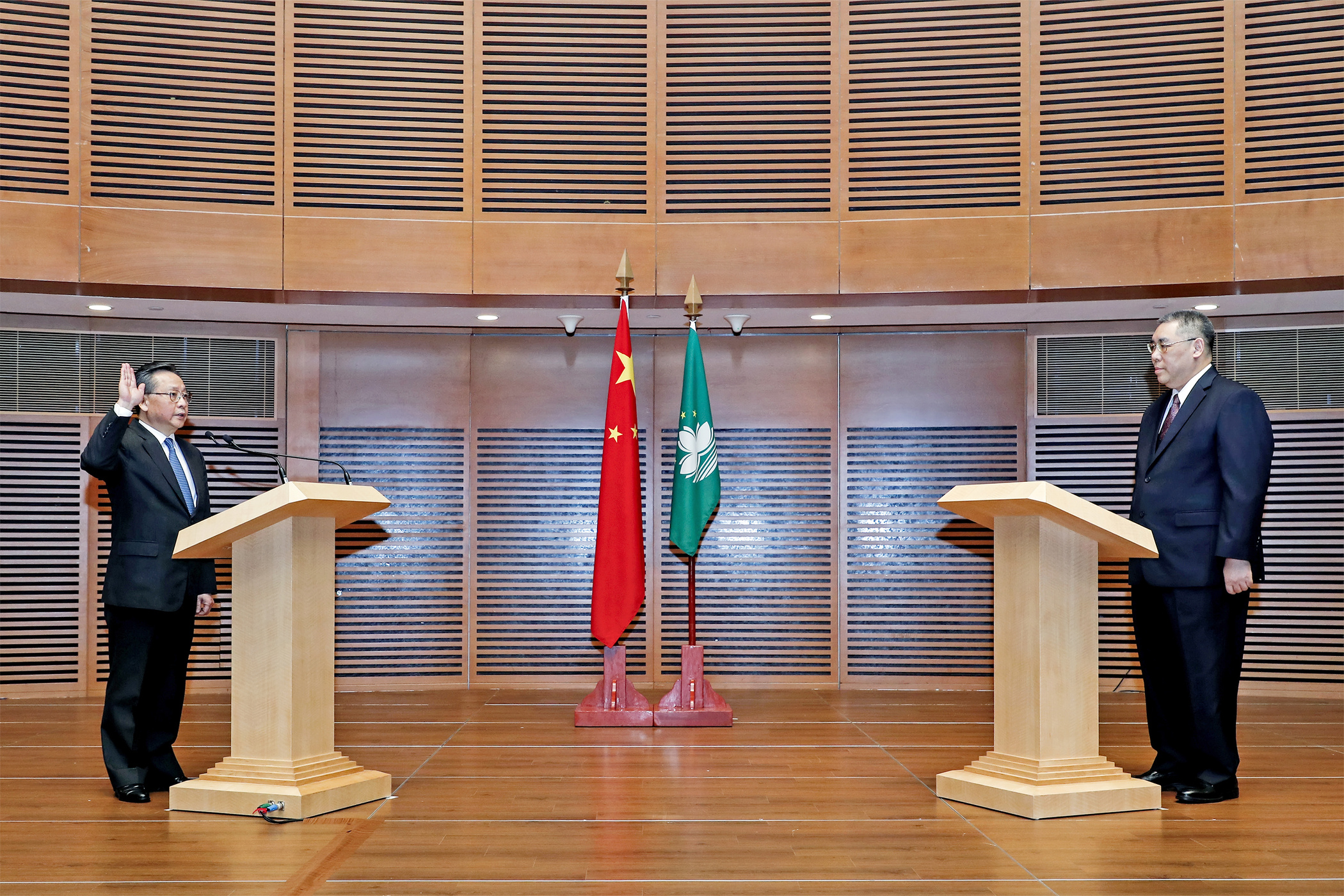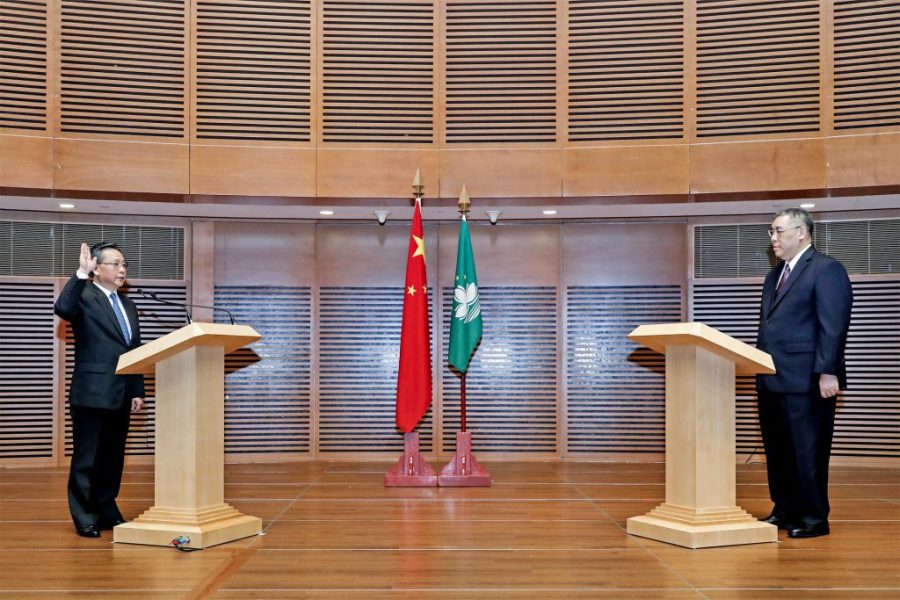Veteran lawmaker-cum-business executive Kou Hoi In was elected president of the Legislative Assembly (AL) by his peers on Wednesday, with 90. 6 per cent of the votes cast, succeeding chief executive hopeful Ho Iat Seng who resigned from the legislature early this month.
Following Ho’s resignation, the legislature currently has 32 members.
Wednesday’s plenary session, in which the 32 lawmakers elected their new president, was chaired by Legislative Assembly Vice President Chui Sai Cheong.
Kou, an indirectly-elected legislator representing the city’s business sector, received 29 of the 32 votes cast. One vote was for directly-elected lawmaker-cum-unionist José Maria Pereira Coutinho and two votes were left blank.
According to the Macau Post Daily, before being elected the legislature’s new president Wednesday afternoon, Kou was the first secretary of the legislature’s executive board. Following Kou taking up the post of the legislature’s speaker, the legislature will have to elect the new first secretary in another plenary session.
The four-member executive board – the legislature’s top management body – consists of the legislature’s president (speaker), vice-president, first secretary and second secretary. Indirectly-elected lawmaker Chan Hong, a deputy principal of Hou Kong Middle School, is currently the executive board’s second secretary. Chan heads the Chinese Educators’ Association of Macau.
After being elected the legislature’s new president during Wednesday’s plenum, Kou, 66, took his oath of office at the Macau Science Centre in Nape in the presence of Chief Executive Fernando Chui Sai On. The oath-taking ceremony was attended by most of his fellow lawmakers, top and senior local officials, members of the Executive Council – the local government’s top advisory body, central government officials posted to Macau, representatives of the People’s Liberation Army (PLA) Macau Garrison, and local civic leaders. Chui’s predecessor Edmund Ho Hau Wah, now a vice-chairman of the National Committee of the Chinese People’s Political Consultative Conference (CPPCC), and Kou’s predecessor Ho Iat Seng also attended the ceremony.
Longest-serving lawmaker
Kou, born in January 1953, has been a lawmaker since 1991 when Macau was still under Portuguese administration. He is the longest-serving lawmaker among the current 32 members of the legislature.
Kou was directly elected by popular vote in a by-election in 1991. He was re-elected as a directly-elected lawmaker in 1992 and 1996 respectively. He was also a member of the Macau Special Administrative Region’s (MSAR) first-term Legislative Assembly, which ended in 2001. Since then, He has been elected as an indirectly-elected lawmaker representing the city’s business sector for every legislative term – namely the 2001-2005 term, 2005-2009 term, 2009-2013 term, 2013-2017 term, and the current 2017-2021 term.
Kou is the president of the Macau Chamber of Commerce (ACM) which is widely seen as Macau’s most influential organisation. He is also a deputy to the National People’s Congress (NPC). There are 12 NPC deputies from Macau.
Good performance pledge
After Wednesday’s election, Kou told his fellow lawmakers in the hemicycle that he appreciates their trust and support. Kou pledged that he will do his utmost to ensure the legislature’s good performance in carrying out its legislative duties and other tasks such as monitoring the government.
Speaking to reporters after Wednesday’s oath-taking ceremony, Kou said that he will strengthen communication with his fellow lawmakers so as to achieve the legislature’s good performance, with the aim of contributing to Macau’s socioeconomic development, prosperity and stability.
Kou also noted that the MSAR has been established for almost two decades so that it is now the right time to review the city’s public administration system, with the aim of improving the government’s efficiency, including the legislative drafting process. Kou said one of the important tasks for the next government was to promote Macau’s adequate economic diversification, as otherwise the city would possibly be “marginalised”.
Macau’s new chief executive, who will be elected by a 400-member committee on August 25, and his team of principal officials will be sworn in on December 20. In all likelihood, Ho Iat Seng will success Fernando Chui Sai On as chief executive.
Kou also suggested that the government should listen more to opinions raised by various segments of civil society when it is drafting potentially controversial bills, with the aim of reaching a consensus on the matter in civil society, so that such a bill can meet the real needs of civil society.






